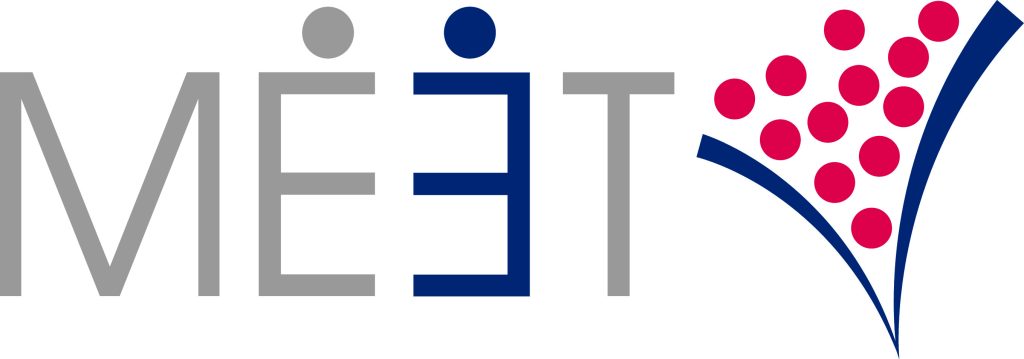 In the bustling commerce landscape, trade shows stand as vibrant hubs of opportunity. These events offer a unique platform for businesses to showcase their products, connect with potential clients, and stay abreast of industry trends. However, with a plethora of trade shows spanning various industries and niches, choosing the right trade show for your business can be akin to finding a needle in a haystack. So, how do you navigate this terrain effectively? Let’s delve into the art of choosing the right trade show.
In the bustling commerce landscape, trade shows stand as vibrant hubs of opportunity. These events offer a unique platform for businesses to showcase their products, connect with potential clients, and stay abreast of industry trends. However, with a plethora of trade shows spanning various industries and niches, choosing the right trade show for your business can be akin to finding a needle in a haystack. So, how do you navigate this terrain effectively? Let’s delve into the art of choosing the right trade show.
Define Your Objectives Before Choosing the Right Trade Show:
Before delving into the myriad of trade show options, it’s imperative to define your objectives clearly. Are you aiming to generate leads, build brand awareness, network with industry professionals, or launch a new product? Understanding your goals will serve as a compass in guiding your selection process. Each trade show caters to different objectives, so aligning your goals with the focus of the event is crucial.
Research Your Target Audience:
Understanding your target audience is fundamental in selecting the appropriate trade show. Consider demographics such as age, gender, profession, and interests. Research which trade shows attract attendees that closely match your target demographic. For instance, a technology company specializing in gaming peripherals would likely find more value in attending gaming expos rather than general tech conventions.
Evaluate Industry Relevance:
Not all trade shows are created equal. Some cater to broad industries, while others focus on specific niches or emerging sectors. Evaluate the relevance of the trade show to your industry and niche. Look for events that attract key players, influencers, and decision-makers within your sector. Participating in a trade show that aligns closely with your industry ensures that you’re surrounded by individuals who understand your products or services and are more likely to convert into leads or collaborators.
Assess Past Performance to Improve Trade Show Selection:
One of the most reliable indicators of a trade show’s potential value is its past performance. Research the history of the event, including attendance figures, exhibitor feedback, and post-event analysis. Analyze factors such as foot traffic, lead generation opportunities, and return on investment (ROI) for previous participants. Positive testimonials and success stories from exhibitors can provide valuable insights into the effectiveness of the trade show in achieving business objectives.
Consider Geographic Reach:
Geographic location plays a significant role in determining the suitability of a trade show for your business. Consider whether you’re targeting a local, regional, national, or international audience. If your business operates primarily on a local scale, attending a national or international trade show might not yield the desired results. Conversely, if you’re business has established product-market-fit in the U.S. then national shows can offer invaluable networking opportunities and exposure to the entire market.
Evaluate Costs and Resources:
Participating in trade shows requires a significant investment of both time and resources. Evaluate the costs associated with exhibiting at each trade show, including booth rental fees, travel expenses, promotional materials, and staff wages. Calculate the potential return on investment (ROI) based on your objectives and projected outcomes. While larger trade shows may offer greater exposure, they also come with higher costs. Balance your budget constraints with the expected benefits to ensure that you’re making a financially prudent decision.
Seek Feedback and Recommendations When Choosing the Right Trade Show:
Don’t hesitate to reach out to industry peers, mentors, or professional associations for recommendations and feedback. Their insights and experiences can provide valuable guidance in selecting the right trade show for your business. Additionally, leverage online resources such as trade show directories, forums, and social media groups to gather insights from fellow exhibitors and attendees.
Choosing the right trade show requires careful consideration of your objectives, target audience, industry relevance, past performance, geographic reach, costs, and resources. By conducting thorough research and analysis, you can identify trade shows that offer the best opportunities for achieving your business goals and maximizing your ROI. Remember, success at a trade show is not just about being present but about being present in the right place, at the right time, and for the right reasons.
For an expanded view on this topic refer to our article The 3 Truths of Gaining U.S. Sales Traction.
—
About MEET
MEET helps international B2B & B2G companies scale in the U.S. through trade shows, events, and strategic connections. Contact Bill Kenney to discuss your U.S. expansion goals bill@meetroi.com or +1 (860) 573-4821.

